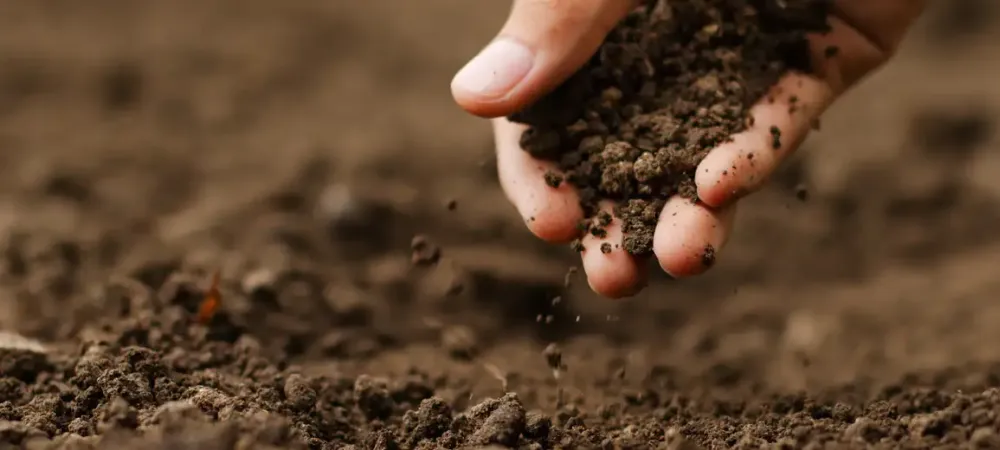The Science of Soil Health: Why It’s the Key to Thriving Lawns Nationwide in 2025

When most people think about a beautiful lawn, they picture green blades of grass, not what’s beneath them. But the truth is, healthy soil is the foundation for any thriving lawn. In 2025, with changing weather patterns and growing demands on outdoor spaces, soil health is more important than ever. At Environmental Turf Management, we know that building a great lawn starts from the ground up, literally, using science-backed strategies to optimize soil conditions and support lasting results.
Understanding Soil as a Living System
Soil isn’t just dirt; it’s a living ecosystem teeming with microorganisms, organic matter, and nutrients. Healthy soil has active microbial life that breaks down organic material, releasing nutrients that the grass roots can absorb. This nutrient cycling fuels steady growth and helps your lawn naturally resist pests and diseases. Without healthy soil, even the best seed or turf will struggle to thrive.
How Soil Health Impacts Lawn Growth
Soil structure, texture, and pH all play a direct role in how well your grass grows:
- Balanced pH — When the pH is in the ideal range (typically 6.0–7.0 for most lawns), nutrients like nitrogen, phosphorus, and potassium are more available to plants.
- Strong Soil Structure — Well-structured soil allows roots to grow deep, anchoring grass for improved drought resilience and better nutrient uptake.
- Moisture Management — Healthy soil holds moisture efficiently without becoming waterlogged, reducing the need for constant watering.
Signs your soil may be struggling:
- Standing water after rain (poor drainage)
- Grass that yellows despite regular fertilization
- Thin, weak growth that pulls up easily
- More weeds than grass in certain areas
Common Soil Challenges in Georgia and Beyond
In Georgia, heavy clay soils often become compacted, making it hard for roots to spread and for water to drain. pH imbalances can also limit nutrient uptake, leaving lawns thin and patchy. These issues aren’t unique to Georgia; lawns nationwide face similar problems.
Typical soil issues we see include:
- Compaction — Roots can’t grow through dense soil; water and nutrients can’t penetrate effectively.
- Drainage Problems — Water either runs off or pools, leading to root stress and disease.
- Nutrient Deficiencies — Key elements like nitrogen or iron are lacking, resulting in pale or stunted grass.
Our core lawn aeration service is designed to:
- Relieve compaction for better root expansion
- Improve airflow and water movement to the root zone
- Create micro-channels for fertilizer and lime to work more effectively
Custom Fertilization Plans Based on Soil Analysis
Generic fertilizer programs treat every lawn the same, but no two lawns have identical soil. That’s why we start with professional soil testing to identify nutrient levels, organic matter content, and any deficiencies.
From there, we create a custom fertilization plan with:
- The right nitrogen, phosphorus, and potassium ratio
- Additional micronutrients like iron, manganese, or zinc, if needed
- Lime or sulfur applications to correct pH imbalances
- A seasonal schedule that supports steady growth without overstimulation
This targeted approach ensures your grass gets exactly what it needs—nothing wasted, nothing missing.
Weed and Disease Control Through Soil Health
Healthy soil creates stronger, thicker turf that naturally crowds out weeds and better withstands disease pressure. Our year-round weed control and targeted disease management build on a healthy soil foundation, reducing the need for reactive treatments and keeping your lawn looking its best through every season.
Professional Lawn Care and Soil Services in Georgia
Healthy soil is the foundation of a beautiful lawn, and it takes more than guesswork to get it right. That’s where we come in. Our team specializes in soil testing, pH balancing, fertilization, and targeted treatments that work with your property’s unique conditions. Whether you’re battling acidic soil, stubborn weeds, or patchy grass, we know how to create the ideal environment for lasting lawn health. Trust your local soil pros to keep your lawn thriving season after season.
Why is soil health so important for my lawn?
Healthy soil is the foundation for strong, green grass. It provides essential nutrients, supports deep root growth, improves water retention, and helps your lawn resist weeds, pests, and diseases. Without healthy soil, even the best grass seed and fertilizer can struggle to deliver results.
What is a lime application, and do I need one?
Lime applications adjust your soil’s pH, making it less acidic. In Georgia, many lawns have naturally acidic soils, which can lock up nutrients and prevent grass from absorbing them. Lime balances the pH, improving nutrient availability and overall lawn performance.
How often should I fertilize my lawn?
Most Georgia lawns benefit from multiple fertilization applications throughout the growing season. Our custom plans are based on your soil analysis, so your lawn gets exactly what it needs, no more, no less.
Can soil problems cause weeds?
Yes. Poor soil conditions can weaken grass, leaving open spaces for weeds to take over. By improving soil structure and nutrient levels, we help your lawn grow thick and strong enough to crowd out weeds naturally.`
How do I know if my lawn needs professional care?
Signs include thinning grass, persistent weeds, yellowing patches, compacted soil, or poor drainage. A professional soil test can identify the underlying issues and guide the right treatments.
What pH level is best for lawns?
Most grass types thrive in soil with a pH between 6.0 and 7.0. If the pH is too acidic or alkaline, your lawn can struggle to absorb nutrients, even if they’re present in the soil.
Can compacted soil really harm my lawn?
Yes. Compacted soil limits root growth, blocks water and air from reaching roots, and encourages weeds. Aeration helps relieve compaction and restores healthy airflow underground.



